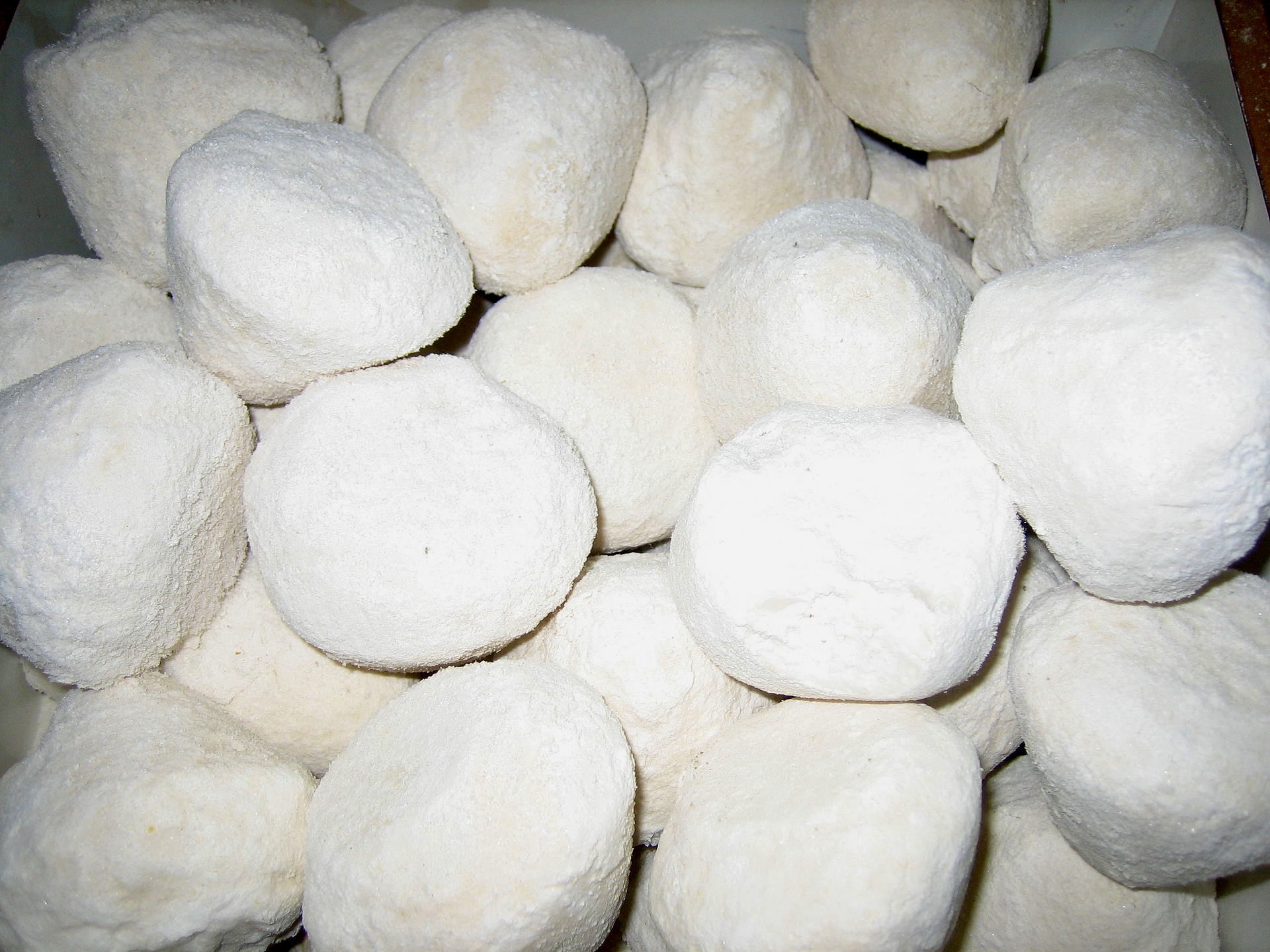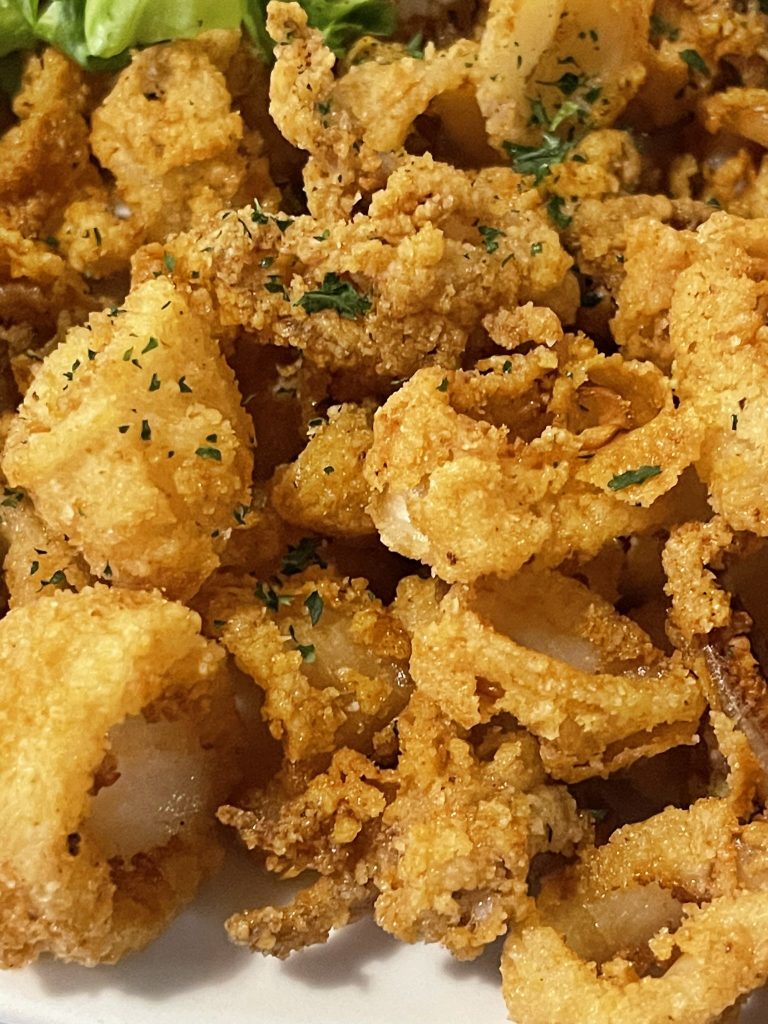Moral: follow up clues with questions to find nuggets of greatness hidden behind everyday facades
When I walk into a restaurant, I look for clues that the menu does not list all the dishes that can land on the tables. In my experience, the smaller the restaurant, the less often menus are updated, or detailed enough to indicate occasional specials gracing its tables.

In Amira’s Kitchen, 894 Tonawanda St., I was chatting with proprietor Amira Khalil, a Palestinian grandmother from Jerusalem, when I noticed a photograph on the wall behind the register.
“What’s that?” I said, pointing.
“Mansaf,” she said. “You don’t know mansaf?”
Scooooooooore, went the Rick Jeanerret voice in my head. It’s not every day, after a decade of dedicated dish-chasing, that I get to add a dish to my life list.
All you have to do is ask “What’s that?” and follow up. In Chinese places with specials listed only in Mandarin or Cantonese, following it up with “I want that,” lets me hack my way around the fact that English is all I have.
“So how do you make mansaf?” I asked her.
“First,” said Amira, “you cut up one lamb.”
Braise the bone-in meat, until fall-apart tender, in broth made from reconstituted dried, fermented yogurt, made from sheep or goat’s milk. That’s called jameed, and it comes in dusty rocks that look like chalk.
Jameed is made by drying salted yogurt in the sun on cheesecloth. Scraped together and allowed to dry out thoroughly in the shade, lest it yellow, properly prepared jameed will keep indefinitely.
More jameed is dissolved into a sauce with lemon to spoon over the lamb, presented on a plate with a layer of pita bread on the bottom, rice pilaf, lamb, crowned with toasted almonds.
Mansaf is the national dish of Jordan, but enjoyed across the Levant as a traditional Friday night after-mosque dinner for families, Amira said. I thought of the Sunday sauce tradition embraced by Italian-American families gathering to feast after Sunday Mass.
When the plate arrived, lamb glossed in pale gravy, I took a bite.
The klaxxon went off in my head. The intense lactic tang of yogurt concentrate transformed lamb fat into gravy of the gods. Gaminess that might put off delicate eaters fades into lushness as you tickle meat off the bones. Then you spoon on more jameed sauce to jack up the rest of the plate, making every forkful of bread and rice substrate worth eating.
I took another forkful, feeling a rising level of alarm.
Earlier, while chatting about mansaf, Amira mentioned this might be her last batch. It’s an expensive recipe, and without enough buyers, a money-loser. Her cousin makes mansaf as well, at Al-Qimma Halal Grill & Butchery, 4236 Union Road, Cheektowaga, but she couldn’t sell it in Riverside.
So I put aside my other tasks of the moment, and decided to see if I could find Amira any takers for her mansaf. I put together a clumsy video, published it, and hoped for the best.
On Dec. 1, the day I started working for myself as Four Bites, I wanted to celebrate. It was a Friday night, so we went to Amira’s.
Yes, she said, I have mansaf.
These days she makes it every other week, she said, and doesn’t mind people calling 716-262-0013 to see if mansaf is available this Friday. Her current hours are noon-9 p.m. every day but Tuesday, when Amira’s Kitchen is closed.
Her mansaf ($25) is magnificent, and feeds two. (Click on the order link to see current menu and prices.)
But Amira’s Kitchen has topnotch food for everyone. Vegans thrill to the falafel with housemade turnip pickles, plus hummus, babaganoush, and a chopped salad dressed in tahini.
Marinated rotisserie chicken with garlic mayonnaise and zippy green herb dip is Amira’s best-seller, and her kibbe – quenelle-shaped fried croquettes of seasoned beef in a beef-and-bulgur-wheat shell, are the best in Buffalo.
Amira Khalil is a veteran restaurant operator making diverse, delicious meals available six days a week in Riverside. She’s also a grandma who wants to cook, and wonders who she can feed. Perhaps she may be able to help you answer a hunger of your own.
(You can order here.)
#30#







